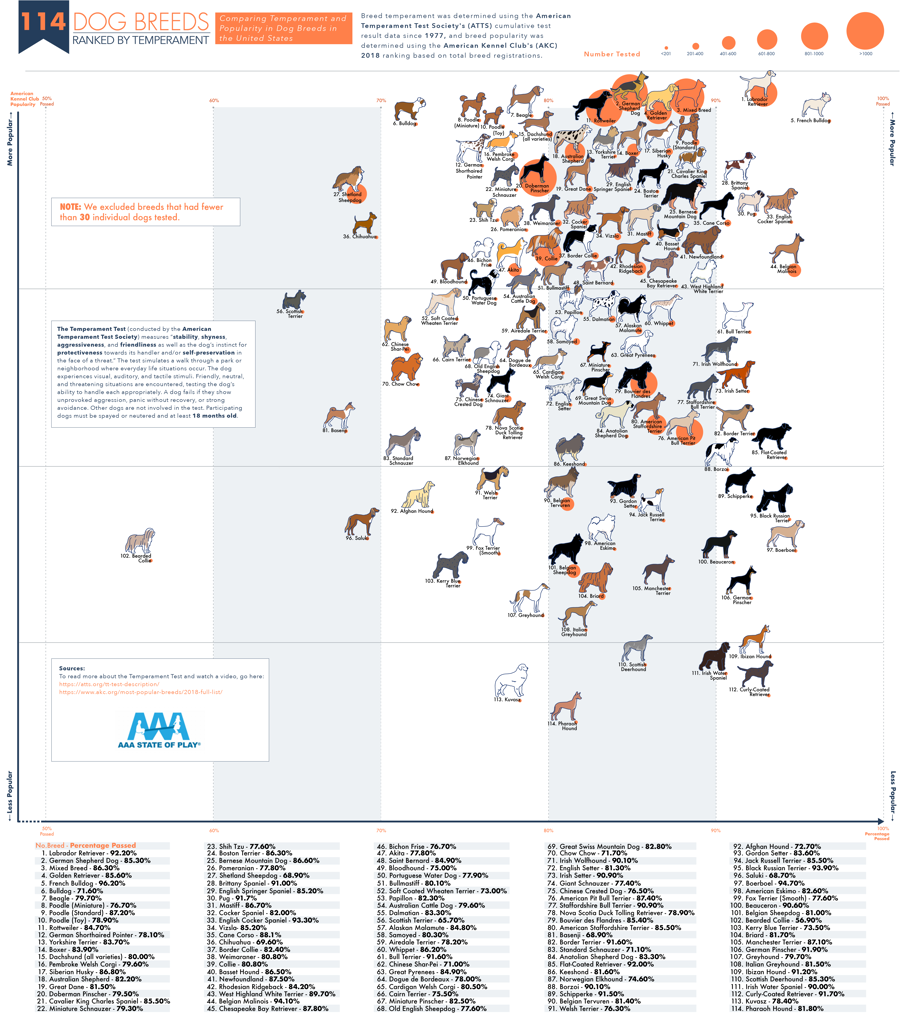this post was submitted on 03 Aug 2023
10 points (56.8% liked)
Data Is Beautiful
6884 readers
253 users here now
A place to share and discuss data visualizations. #dataviz
(under new moderation as of 2024-01, please let me know if there are any changes you want to see!)
founded 3 years ago
MODERATORS
you are viewing a single comment's thread
view the rest of the comments
view the rest of the comments

Nope
https://www.science.org/content/article/your-dog-s-breed-doesn-t-determine-its-personality-study-suggests
There's a lot more variability than breed. The people pushing this outdated BS like OP are using the same arguments and pseudoscience racists use.
I have a Pyrenees, and his temperment is largely influenced by whether or not we're in sight and if he's at home or not. This chart is insanely subjective.